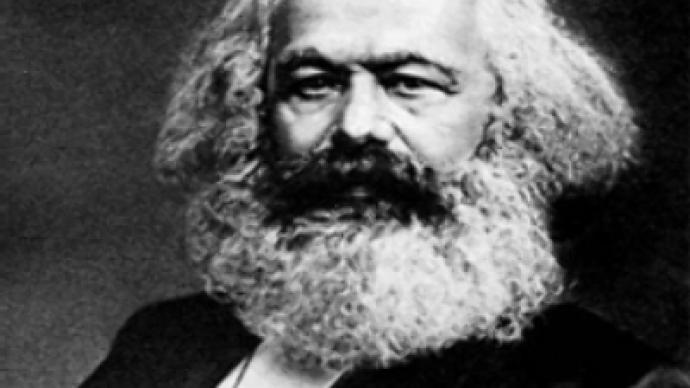Friday's Russian press review

This Friday Russian newspapers follow the ghost of Karl Marx around Europe, explore the limits of Abkhazia’s independence, deny the denial of the Holocaust with Alfred Kokh and listen to the advice of a former reformist politician-turned-academic on the f
KOMSOMOLSKAYA PRAVDA writes that the works of Karl Marx, especially Das Kapital, have become extremely popular in Europe. The trend, says the paper, is linked to the world financial crisis which many interpret as a signal of the collapse of liberal capitalism. The paper says that in Germany book sellers have run out of leftover copies of Marx’s works. A new edition, actually a reprint of the old one, is going to hit the shelves of German bookstores next month.
NEZAVISIMAYA GAZETA writes that Abkhazia seems to understand its own independence more seriously than anyone expected. The failed Geneva conference on security in the Caucasus has shown that Abkhazia wants real independence even if it is only recognised by two countries in the world.
The Abkhazian delegation, says the paper, led their South Ossetian colleagues in a protest which even the Russian delegation was not ready for: they totally refused to sit outside the circle of the negotiating parties. Their position, says the paper, was set in crystal clear terms by the Abkhaz president Sergey Bagapsh: ‘We are not going to sit on a bench for unrecognised states, we intend to talk to everyone as equals.’
TRUD, under the headline ‘Russia won the war with Georgia. What for?’ is trying to look into the positive and negative sides of victory in the ‘Five day war’. The paper cites as positive factors the strengthening of Russia’s strategic position in the Caucasus, the clear demonstration that Russia is serious about defending its interests, the push forward that the war gave to Russia’s sluggish armed forces reform and the unprecedented unity of people and government in Russia.
As for the negative ones, the paper names the damage done to Russia’s international image, the decline in foreign investment (which could have been caused not by the war but by the financial crisis), an emergence of another ‘hot spot’ on Russian borders and the new necessity for Russia to come to terms with the occasionally erratic political behaviour of the leaders of Abkhazia and South Ossetia.
IZVESTIA reports on the book penned recently by the former Deputy Prime Minister of Russia, now a businessman, Alfred Kokh, together with historian and ethnologist Pavel Polyan. The book, says the article, ‘for the first time in print, not in court’ presents strong arguments against the denial of the Holocaust.
The article quotes Kokh as saying: ‘One example: an average reader in the West believed it when the denial articles or papers said that Stalin had killed 2.5 million Jews in the Gulag. Yes, Stalin committed ethnic deportations and similar things, and there are documents to prove it. But there is not a single paper on Jews among those documents.’
The paper says Kokh and Polyan see the practice and theory of the Holocaust denial as part of a giant conspiracy of militant Islamists aimed at ending the Western support of Israel, then destroying the Jewish state and then calling for a world-wide Jihad.
ROSSIYSKAYA GAZETA interviews Yegor Gaidar, the former politician, now Rector of the Institute of Transitional Economy. Gaidar says the financial crisis opens a window of opportunity for Russia: to restart the process of economic reform. He says in 2003–2004 the process was going fine. Now it can be re-launched. The academic says in past years the government has learned to collect money, now it’s time to start learning how to use it properly. He is against huge budget expenditure. He says a new wave of privatisation is necessary to form a strong layer of mid-sized and small business.
Evgeny Belenkiy, RT












